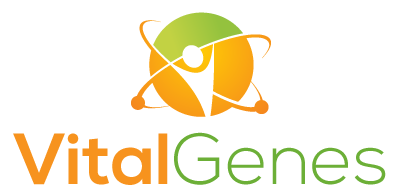Looking for a perfect protein shake?
February 24, 2014
3 ways a genetic profile could save your health
June 18, 2014Eat to suit your headspace

We often group depression under one umbrella, but in fact, depression is experienced differently by everyone. For some it’s an experience of bubbling resentful anger, for others the inability to get off the couch. By drawing on the ancient traditions, Dr Henry Emmons, a American Psychiatrist, has new way of looking at your style of depression based on a western understanding of neurotransmitters, TCM approach to the elements and Ayurvedic Doshas. I use this approach with clients regularly, as it gives us not only an understanding of the basis of their emotional experience, but also a way of supporting through nutrition, lifestyle, and kinesiology.
So what’s your depression style? See which area you fit best into. This may change with each experience, as different meridians and doshas are kicked out of balance. You may also be a combination of two styles.
Dr Emmons offers a 3-step solution.
Step 1 – find the diet and lifestyle that your brain-chemistry requires
Step 2 – make use of body-mind medicine, such as kinesiology and energy medicine.
Step 3 – Understand the psychology of Mindfulness.
ANXIOUS/VATA/AIR
If you are primarily an Anxious type under stress, this corresponds to Vata in Ayurveda, and Air in TCM:
You may feel: like there is never enough, fearful, inadequate, nervous, worried about the future, hold on too tightly, dependent in relationships, Sad, irritable or changeable mood, sensitive to criticism or rejection, low self esteem, have low blood sugar, carb cravings, anxiety, insomnia, alcohol abuse, excessive sweating, chronic pain.
Key statement: ‘There’s never enough’
Emotional key: cultivate generosity
Neurotransmitters: Low serotonin, the ‘happiness hormone’ that triggers feelings of wellbeing
Nutritional support: The following will help balance and ground Vata energies, and promote serotonin production in the brain.
- Diet rich in complex carbohydrates, beans, legumes, and root vegetables
- Eat protein throughout the day, but do not have a high-protein diet
- Plenty of fresh fruit and green, leafy vegetables
- A small handful of nuts/day
- Balance Vata with warm drinks
- Eat regularly – every 4-5 hrs
- Don’t skip breakfast
- Eat with attention – not in front of the TV
- Eat plenty of serotonin-enhancing foods
Daily habits: It is important for all types to make time for rest and renewal, but for anxious or Vata/Air types it is particularly important to:
- Avoid overstimulating books, movies or activities.
- Enjoy warm baths/showers
- Engage your senses with massage and soothing music, and essential oils.
Exercise: The following calming activities will help balance anxiety
- Yoga, Tai Chi, Qigong
- Soothing, repetitive exercise like a gentle walk
- Don’t overexert
Breath: Calming breath – Inhale slowly through the nose, hold for a couple of seconds, and exhale through the mouth.
AGITATED/PITA/FIRE
If you are primarily an Agitated type under stress, this corresponds to Pita in Ayurveda, and Fire in TCM:
You may feel: angry, resentful, despairing, judgemental, demanding, highly critical in relationships, restless, have excessive energy alternating with periods of exhaustion, be a workaholic, have flashes of unexpected anger, sleep difficulties, indigestion, high blood pressure.
Key statement: ‘Whatever I have, it’s not good enough’
Emotional key: cultivate compassion and acceptance
Neurotransmitters: High norepinephrine( a stress hormone), high dopamine (an essential neurotransmitter with a number of functions) and low serotonin, the ‘happiness hormone’ that triggers feelings of wellbeing
Nutritional support: The following will help balance and ground Pita energies, and balance norepinephrine/dopamine production in the brain.
- A vegetarian diet can help balance out the excess Norepi/Dop
- Eat regularly but moderately
- Don’t skip meals
- Eat cooling foods
- 1 daily serve of lemon or lime- squeezed in water
- Favour cold and refreshing drinks
- Eat slowly
Daily habits: It is important for all types to make time for rest and renewal, but for agitated/Pita/Fire types it is particularly important to:
- Develop flexibility in your routine
- Walks in nature, focusing on the experience, not a goal
- Laugh a lot
- Enjoy funny movies, books, comedy
- Engage the senses with art, nature, photography.
Exercise: The following calming activities will help balance Pitta/Fire types
- Swimming, rowing, fast walking, golf, tennis
- Moderate intensity – overdoing exercise will just add to Fire.
Breath: Left nostril breathing – Inhale through your left nostril, exhale through the right with slow deep breathing.
SLUGGISH/KAPHA/EARTH
If you are primarily a Sluggish type under stress, this corresponds to Kapha in Ayurveda, and Earth in TCM:
You may feel: like you sleep too much, have trouble concentrating, have low motivation, are confused, ‘absent’, wonder “What’s the use?”, have low energy, weight gain, withdrawal, passivity, decreased sex drive, slowed thoughts, poor memory.
Key statement: ‘Whatever I have, it’s not good enough’
Emotional key: cultivate forgiveness
Neurotransmitters: low norepinephrine( a stress hormone), low dopamine (an essential neurotransmitter with a number of functions)
Nutritional support: The following will help balance Kapha energies, and balance norepinephrine/dopamine production in the brain.
- Eat less
- Avoid sweets
- High protein breakfast and lunch
- Moderate protein dinner
- Eat small amounts of complex carbs, consumed throughout the day
- Unlimited serves of salad greens and fresh vegetables
- Have a protein shake if you don’t have the time for breakfast
- Enjoy your eggs
- Limit unhealthy fats
- Eat a small handful of nuts/day
- Eat plenty of norepi/dopa enhancing foods
Daily habits: It is important for all types to make time for rest and renewal, but for Sluggish/Kapha/Earth types it is particularly important to:
- Develop a sleep routine, getting up every day between 6-8am
- Avoid naps until your night time sleep is established
- Break the rut – try new experiences and foods
- Don’t hang on to relationships that are no longer nourishing.
Exercise: The following calming activities will help balance Kapha/Earth types
- Aerobics, running, weight training
- Vigorous exercise that pushes you a little ‘outside the comfort zone’
- Brisk walking with a partner
Breath: Energizing breath – Breath in and out quickly, making sure in and outbreaths are equal lengths.
And…
Right nostril breathing – Inhale through the right nostril and exhale though the left.

